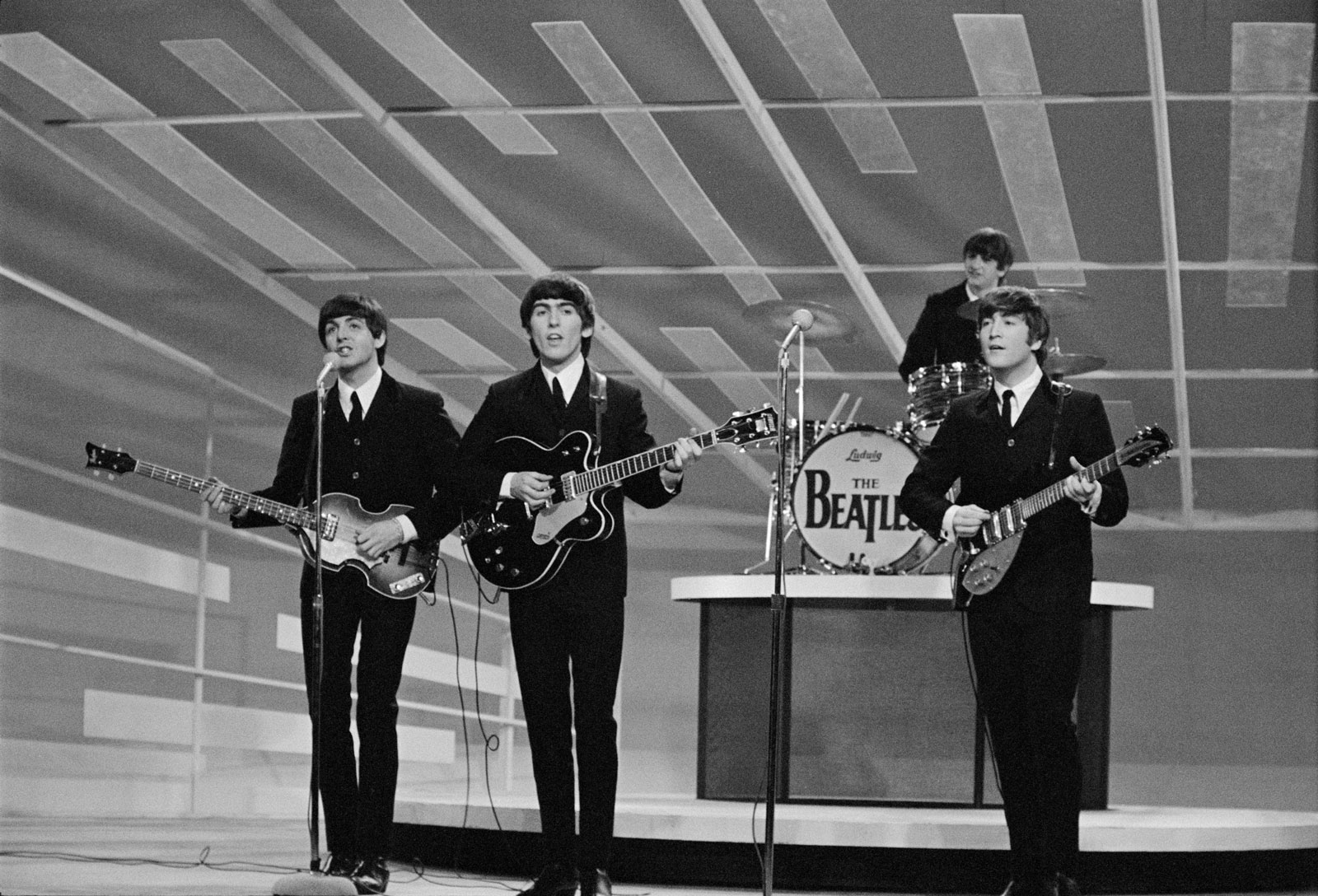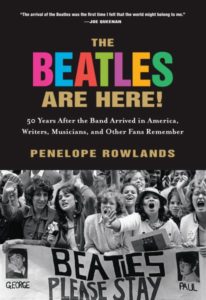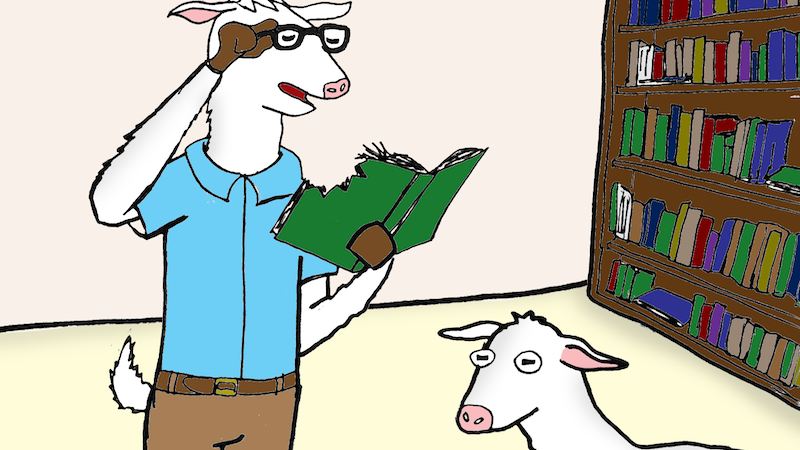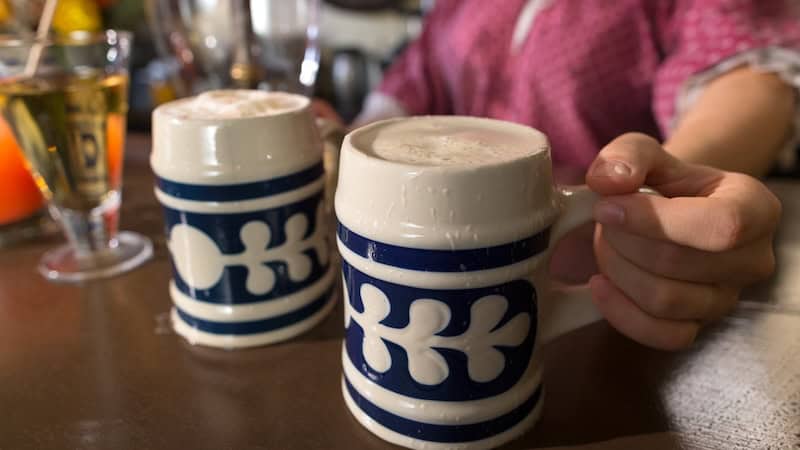The Beatles Are Here!
It was 50 years ago today, the band came to America to play -- and almost nothing has been the same

It was 50 years ago today, the band came to America to play — and almost nothing has been the same
— INTRODUCTORY NOTES BY RAY McALLISTER —
At 8 p.m. on Sunday, Feb. 9, 1964, Ed Sullivan opened his weekly variety show by noting that Elvis Presley, who had performed during a historic evening eight years earlier, had joined with his manager in sending a telegram of congratulations to this evening’s headliners. Then after a few commercials, Sullivan returned to intone:
“Now yesterday and today our theater’s been jammed with newspapermen and hundreds of photographers from all over the nation, and these veterans agreed with me that this city never has witnessed the excitement stirred by these youngsters from Liverpool who call themselves The Beatles. Now tonight, you’re going to twice be entertained by them: right now, and again in the second half of our show. Ladies and gentlemen, The Beatles! Let’s bring them on.”
The Beatles were already atop the U.S. music charts and had been a huge hit in their native England and elsewhere in Europe. But few could imagine the magnitude of their invasion of America.
As John Lennon, Paul McCartney, George Harrison and Ringo Starr took the stage, audience screaming reached a crescendo … and stayed there. As 73 million people watched – meaning more than 4 of every 10 men, women and children in the country – they sang “All My Loving,” “Till There Was You” and “She Loves You.” Not that anyone in the audience could hear. The studio was bedlam. The Beatles returned late in the show to perform “I Saw Her Standing There” and “I Wanna Hold Your Hand” to the same reaction.
The reaction was the same a week after that, too, when the band performed again on The Ed Sullivan Show, this time live from a Miami hotel. And the national reaction was the same the next week – even though this third Sullivan performance had actually been recorded earlier, before the first one.
Most people knew “Beatlemania,” as it would come to be called, was a phenomenon of never-seen proportions. But they had not agreed on what it would portend. Newsweek magazine, in its Feb. 24 issue, famously found itself on the wrong side of history. In a cover story, “Bugs About Beatles,” the magazine began its review of the first Sullivan show performance thusly:
“Visually, they are a nightmare: tight, dandified, Edwardian/Beatnik suits and great pudding bowls of hair. Musically, they are a near-disaster: guitars and drums slamming out a merciless beat that does away with secondary rhythms, harmony, and melody. Their lyrics (punctuated by nutty shouts of “yeah, yeah, yeah!”) are a catastrophe, a preposterous farrago of Valentine-card romantic sentiments.” The article ended: “The odds are they will fade away, as most adults confidently predict.”
They didn’t. The British Invasion had begun.
50 YEARS AFTER THE BAND ARRIVED IN AMERICA, WRITERS, MUSICIANS AND OTHER FANS REMEMBER
By Penelope Rowlands
Paperback, $15.95 retail, 288 pages, by Algonquin Books
Copyright 2014 by Penelope Rowlands. Excerpts reprinted by permission of Algonquin Books of Chapel Hill.
All rights reserved.
Penelope Rowlands was one of millions caught up in “Beatlemania,” and she had documentation. Now a writer, she was one of five screaming girls captured in an iconic photograph published throughout the world – and now reproduced on the cover of her new book, The Beatles Are Here! 50 Years After the Band Arrived in America, Writers, Musicians and Other Fans Remember. The following excerpts feature four perspectives from the soon-to-be-published book.
 EXCERPT FROM: THE BEATLES ARE HERE!
EXCERPT FROM: THE BEATLES ARE HERE!
“COUSIN BRUCIE” MORROW, WHO WORKED FOR WABC-AM in New York City when the Beatles arrived, is the disc jockey often most associated with fanning the Beatles frenzy. Morrow, now a host on SiriusXM Satellite Radio, describes the buildup:
The Beatles were probably the most important thing that happened in my career. They gave it a tremendous surge, a tremendous surge.
Because of the power of the New York radio station where I worked, WABC — which we eventually called “WABeatlesC” — I was the disc jockey who got the Beatles records before anybody else. This was literally due to power — because of this 50,000-watt clearance from the transmitter, record companies like EMI and Capitol would make sure I received the records first. The other radio stations in the rest of the country wouldn’t get them till the next day.
When new Beatles records came out it was huge, huge. They would arrive in my office with an armed guard and a promotion man. It was kind of weird — the guard would have an attaché case, with the new record in it, handcuffed to his wrist. I had to promise not to play it until the next day.
AM radio, which preceded satellite radio, had an interesting physical characteristic: It bounced off of the ionosphere. If you remember your physical science, you’ll recall that the ionosphere rises at night. As it got later, the AM radio signal would bounce. The higher the ionosphere layer, the farther I would reach; by nine o’clock, I was reaching forty states. That’s how I got a national image.
When other radio stations and Beatlemaniacs found out that I had a new record, and that I was going to be playing it, they would record it. I’d play it on the air and suddenly Pittsburgh, say, would have it or Wisconsin or Chicago. They’d have it that same night, they’d tape it off the air. It got so crazy with people taping that every ten seconds I would announce ‘Exclusive! Cousin Brucie Exclusive! Exclusive!’ and it would completely obliterate the record. It was a terrible thing to do but the audience understood. We had to do it so nobody else would copy the record, especially our local competitors.
Whoever got a Beatles record exclusive first won the game. We got the highest ratings. We would always get them.
*****
PENELOPE ROWLANDS IS A JOURNALIST AND CRITIC and the author of Paris Was Ours and A Dash of Daring: Carmel Snow and Her Life in Fashion, Art, and Letters. She describes pandemonium in front of the Beatles’ hotel on a later visit to New York City:
I stepped off the train at the Bloomingdale’s station, climbed the filthy, trash-strewn stairway to the street, then headed a block west. I could almost feel the frenzy of a thousand restive girls as I turned the corner onto Park. The crowd, when I reached it, seemed monstrous, alive. Thrilling! Policemen patrolled in pairs; passersby stopped to stare.
I took my place among the pack, my sisters in screaming, girls who, in memory, look remarkably alike, with the straight hair I envied; their Beatles-inspired bangs cascaded glossily down past their eyebrows. When I arrived they were talking excitedly among themselves. John — someone was sure of it — had been sighted on the eighth floor. We stared up, as one, and waited. Whenever we saw a shadow move, or a curtain ripple, we’d shriek.
We’d been screaming together, all over New York, for the past six months. Just weeks earlier, we’d waited in a quiet frenzy at Forest Hills Tennis Stadium, where the brightly lit stage looked silvery in the humid, late summer night. When the Beatles walked out, four tiny stick figures in the distance, we rose as one. We heard only a chord or two of music. Mainly there was this enormous roar, and we were part of it. After forty minutes or so the figures retreated, the stage went dark, and we emerged from our collective trance. I would be hoarse for days.”
*****
The Beatles arriving at JFK Airport.
Photo by Bettman/CORBIS
ANNE BROWN, WHO WORKS FOR THE NATIONAL AUDUBON SOCIETY and lives in Chapel Hill, N.C., recalls a sort of delirium that took over during a Beatles concert. She describes rushing the stage at a later concert in Atlanta:
I was so excited at that concert, but then I had a moment of thinking I couldn’t hear them. I don’t know what came over me. I got mad — and I just made the decision that I was going to charge the stage. Which is really not like me. At any rate, I made that decision.
I made my way down to the railing between the seating area and the stage and I just went over it. I hung on the rail, then I dropped, dropped down to the ground, maybe eight or ten feet. And then I got up and started running toward the stage.
This is the best moment of Beatlemania for me. There was this din going on all the time and, when the screaming girls saw somebody going across the field, it just went up. Way up. It got louder — I don’t know how many decibels — and it gave me such a rush as I ran. I was just carried by that.
And then there were two policemen or security guards running toward me, running toward me, running toward me, and I managed to scoot right in between them and get away from them and there was even more screaming from the crowd. I managed to get to the stage — a kind of platform they’d put up — and throw myself up onto it. It was low, probably chest high. I dove onto the corner where John Lennon was, but the two security guys grabbed my feet and yanked me off right away.
They pulled me off and knocked the breath out of me so they had to give me some smelling salts. The show went on. The guards sort of pulled me around the back or something to give the smelling salts to me. I had waited until the end to make the run and it was the last song. The guards then escorted me out of the stadium, took me outside, and seemed to feel that I could find my parents and my ride on my own, which I could.
That was a big, big moment for me. I was as un-well-behaved as I could be without pushing things too far. It was great.
*****
HENRY GROSSMAN PHOTOGRAPHED THE BEATLES for years, the results featured in two recent books: Places I Remember and Kaleidoscope Eyes. He was there at the very beginning in America, that night the Beatles first appeared on Sullivan:
Time magazine sent me to photograph The Ed Sullivan Show. I knew who the Beatles were, kind of, from the news, but not a lot. I had no expectations when I went in to photograph. I had no ideas about the band. I wasn’t listening to their music.
I photographed the line waiting to get into the theatre. There were lines of girls waiting and screaming. While they were playing, I was photographing the audience. I saw the impact the Beatles had. The girls were screaming and crying.
I understand that what Sullivan did was that he taped one show in New York, then broadcast it in two separate sections, so that it looked like two broadcasts. He only did one tape [from New York], but he made two shows out of it.
I was just amazed at the panoply of photographers at The Ed Sullivan Show. I’d seen it before: I had photographed Kennedy during the campaign and seen how groups of photographers chased him around; at his first press conference as president there were lines of them.
I moved around during the broadcast. I shot on the ground floor. I sat in the balcony. I moved around up there. I covered it from every angle I could. After the show there was a photo opportunity where we photographers lined up to get shots of the Beatles.
At their first press conference in New York, I remember being amused by them and liking them. They weren’t smarmy or nasty or anything like that. They were just fun. They had great fun, and great intelligence.
When [the photos of the Sullivan show for Time] came out, the British paper the Daily Mirror called me and asked if I would go to Atlantic City for a day with the Beatles, and then a concert, and I went. (The paper had an office in New York and I was a photographer for them.) I spent a day and a night with them there.
They were playing Monopoly and cards in a hotel. I have a picture of George lying on the floor playing Monopoly with [singer] Jackie DeShannon. Ringo was playing poker or something with somebody.
At one point I said. “So Ringo, how do you like America?” He took me by the arm and showed me a view of a blank wall looking over a parking lot. He said, “Henry, this is all we’re seeing of America.” I spent a day and night with them down there.
As an Amazon Associate, Boomer Magazine earns from qualifying purchases of linked books and other products.


